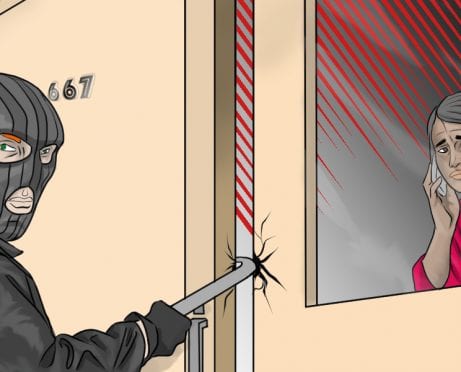
 Who pays for a house in cash? In today’s low-interest-rate environment, you would have to be crazy, stupid, or crazy stupid rich to buy a house with cash, right? Not according to 31.8 percent of the home-buying population who paid in cash for their homes in the first quarter of 2016.
Who pays for a house in cash? In today’s low-interest-rate environment, you would have to be crazy, stupid, or crazy stupid rich to buy a house with cash, right? Not according to 31.8 percent of the home-buying population who paid in cash for their homes in the first quarter of 2016.
Despite the rise of 30-year mortgages in the 1970s, for the last four decades, almost one in four houses purchased in the United States has been paid for in cash during that same time period. And for the record, it’s not institutional investors paying cash for these houses (they comprise just 2.6 percent of the market). It’s people like my husband and me.
That’s right. We paid cash for our house, and I like to think that we’re neither crazy nor stupid. This is how we did it.
First You Get the Money
Buying a house in cash takes a lot of one thing: cash.
My husband and I stashed a fair amount of it through a combination of luck and effort. Thanks to scholarships and family support, we graduated from school without debt. That allowed us to start saving as soon as we started working.
We also spent our early careers working in high-income fields (engineering and marketing analytics) in which our combined salaries topped six figures for five of the last six years. Between high salaries, side income, nice investment returns, and one frugal partner, we managed to have a tidy sum of cash by the time we were ready to buy.
Manage Your Money Better With a High Interest Checking Account — Sign Up Today >>
However, the pile wasn't yet six figures high. We had just a shade under $90,000 saved when we started shopping. Thankfully, in Raleigh, $90,000 was more than enough for a home purchase.
Then You Get the Power
Organizing cash was only half of the battle. The second half involved finding a home that was worth our money. I think that using cash made us smarter home buyers, since we felt the weight of the purchase heavily, and we did not want to make a wasteful decision.
Despite its reputation, cash buying isn’t necessarily a power position.
Most home sellers want to get top dollar for their homes, even if it means that the house will stay on the market for a few weeks or months while an offer finalizes. However, cash buyers have a power position with “motivated” sellers.
Motivated sellers want to shed their property. Some are on the edge of foreclosure. Others inherited the property, but they live in another state. Still others need the equity so that they can buy a new home in another location. Whatever their motivation, they are looking for a quick closing, and that’s what a cash buyer’s offer can do.
According to the study cited earlier, in the first quarter of 2016, cash buyers paid 23 percent less per square foot than buyers who financed their house. Some of them might be flippers out to make a quick buck by buying fixer-uppers, but I believe a majority offered better value to the motivated sellers.
Get a Free Quote for a Home Improvement Loan in Minutes — Visit Site >>
When Rob and I started house hunting, we put in offers on half a dozen properties that either weren’t accepted or received counteroffers didn’t fit our budget. But we eventually found a motivated seller. He was a real estate investor looking to liquidate immediately. We visited the house two days after it came on the market, and we put in a lowball offer.
We didn’t expect the offer to be accepted. but when we told him it was a cash offer and that we only needed a three-day contingency period, the seller accepted it.
Then You Buy a House
The closing process for a cash purchase is fast. We wired earnest money to an escrow account, then we inspected the home to be sure we hadn’t missed any problems.
Since we did not hire a buyer’s agent, we hired a real estate lawyer to review the contract with us before the closing. He pointed out our original offer included appliances. But the contract they sent to us did not include appliances, and we negotiated a discount. Having cash did not make us real estate experts, and I’m thankful that we hired the lawyer.
After the final negotiations, we wired the remaining cash to an escrow account and two days later, we met at an attorney’s office to close the deal. Closing took around 20 minutes. This included signing five documents and spending about 10 minutes searching for my driver’s license so that the lawyer could verify who I was.
Get Homeowner’s Insurance From a Top Provider — Free Quote Here >>










